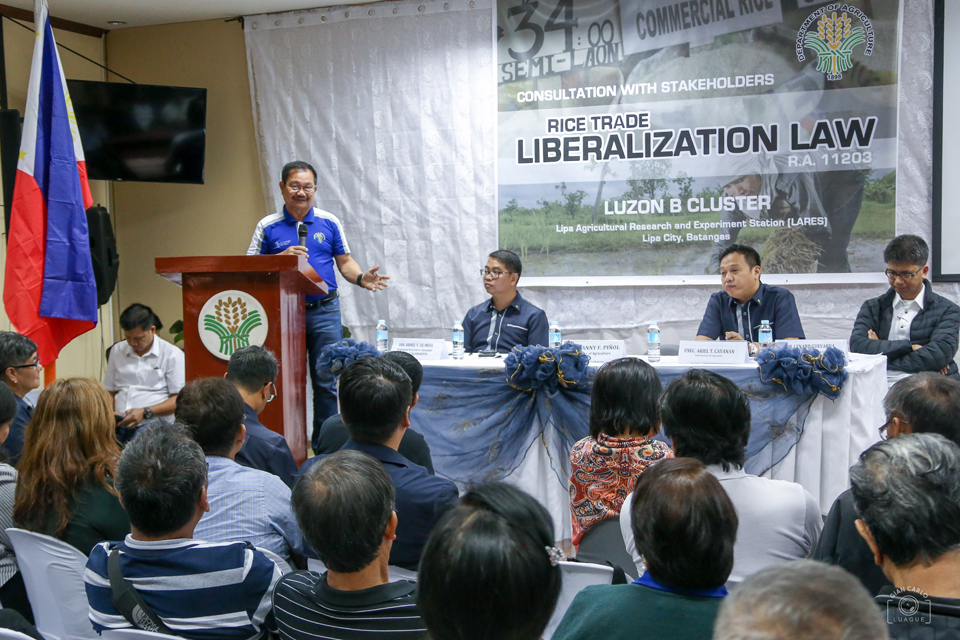
Department of Agriculture (DA) Secretary Emmanuel Piñol reiterated his request to farmers to never give up planting rice for the sake of their children and the next generation.
“Huwag nating bitawan ang pagsasaka para sa kinabukasan ng inyong mga anak. Nandito ang DA para protektahan ang farmers (Let us not abandon rice farming for the future of your children. The DA is here to protect farmers),” Piñol stated during the South Luzon leg of the nationwide information campaign and stakeholders’ consultation on the Implementing Rules and Regulations (IRR) of the Rice Trade Liberalization Law yesterday, February 27, 2019 at the Southern Tagalog Integrated Agricultural Research Center in Lipa City, Batangas.
As a farmer himself, Sec. Piñol shared the sentiments of the sector on the new law or Republic Act 11203. He presented DA’s plan of action in dealing with the threats of liberalization through the Philippine Rice Industry Roadmap 2040.
The DA primarily aims at improving the farmers’ competitiveness and raise their farm incomes by farm productivity enhancement and resiliency to disasters and climate risks. Specifically, it targets to increase average yield to six metric tons in high-yielding provinces and 5 metric tons in medium-yielding provinces by 2024. The Department also intends to reduce farm production cost by 30 percent, postharvest losses to 12 percent, and marketing cost by P1 per kilogram.
Piñol explained that it is shortsighted to state that the country would do better by importing rice rather than investing in rice production program. ‘’If the Philippines relies on rice importation, its supply will be at the mercy of other countries that could impose high prices potentially resulting to another rice crisis in a few years,” he added.
He is positive that Filipino farmers could increase the volume of exports of various rice varieties — organic, heirloom, and upland fancy that would command a higher price in the foreign markets. Considering the Philippines’ and neighboring countries’ population growth rate, there would be a high demand for rice.
Recognizing the rice farmers’ fears with the implementation of the new law, Piñol assured them to do everything to protect them. In return, he asked the rice stakeholders to never give up on rice farming and have faith in the government as it intends no harm to its people.
Librado Guarin of the General Trias City Agriculture and Fisheries Council shared that as he is worried of the new law, he considers shifting to another activity other than rice farming.
“Sana huwag tanggalin ang powers ng NFA [National Food Authority], dahil maraming farmers ang umaasa dito (I hope that the NFA powers will not be removed, because many farmers rely on this),” Guarin said. However, he said he was glad to learn about the law’s provisions of protecting the farmers and his concerns were addressed by the Secretary’s presentation.
While local farmers are alarmed with the influx of cheap imported milled rice, the law sets provisions that will benefit the rice farming industry. The RA 11203 states that P10 billion will be allocated to the Rice Competitiveness Enhancement Fund (RCEF) annually for six years on top of the DA regular fund for the Rice Program. The RCEF will be used for rice farm machineries and equipment (50%), rice seed development, propagation, and promotion (30%), expanded rice credit access (10%), and rice extension services (10%).
The Rice Trade Liberalization Law replaces the quantitative restrictions on rice imports with tariff, as a more beneficial and transparent way of generating revenues to support the sector. ### (Gumamela Celes Bejarin, DA-AFID)













